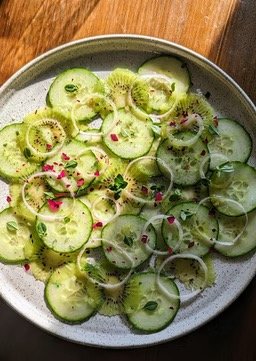HandCrafted High Quality Food
My passion for high-quality, handcrafted food didn’t happen overnight. It developed over years of studying nutrition, working with athletes, and striving to optimize health through food. Through this journey, I came to understand a fundamental truth: the best way to be truly healthy is to consume the highest-quality, most nutrient-dense food available. That means prioritizing fresh, local, and responsibly sourced products, prepared with care—either by yourself or someone who respects every detail of the food preparation and cooking process.
In today’s fast-paced world, convenience often trumps quality. Processed, mass-produced food is designed for shelf life, not nourishment. Yet, when you take a step back and focus on the origins and quality of your food, the difference is profound. Nutritional value, flavor, and overall well-being improve drastically when food is thoughtfully chosen and prepared with precision. The way food is grown, raised, and cooked directly impacts its ability to support performance, recovery, and long-term health.
For me, the shift toward high-quality, handcrafted food was rooted in science. Nutrient density is key to fueling the body effectively, and the best sources of vitamins, minerals, and bioavailable nutrients come from foods grown or raised in optimal conditions. Factory-farmed meat, nutrient-depleted soil, and ultra-processed foods create deficiencies that no supplement can truly fix. Instead, the focus should be on real, whole foods—pasture-raised meats, wild-caught seafood, organic vegetables, grass fed dairy, and fermented foods that support gut health.
Beyond nutrition, craftsmanship in food preparation matters. A properly cooked steak, a perfectly balanced broth, or a freshly baked loaf of sourdough isn’t just about taste—it’s about extracting the maximum experience and nutritional benefit from the ingredients. The way a chef or home cook handles food—fermenting, slow-cooking, properly sourcing fats, and respecting the integrity of ingredients—determines whether a meal is merely sustenance or a source of true nourishment.
Local and seasonal eating also plays a crucial role. Food grown in your region, at its peak ripeness, is not only fresher but also more nutrient-dense. A tomato picked in-season from a local farm contains significantly more vitamins and antioxidants than one shipped thousands of miles, ripened artificially. Supporting local farmers and producers ensures access to better-quality food while strengthening the food system and economy around you.
Handcrafted, high-quality food isn’t about elitism—it’s about intentionality. It’s about respecting the process of nourishing your body and mind, whether that means spending time in the kitchen refining techniques or trusting a skilled chef who prioritizes the same values. When food is prepared with care, using the best ingredients available, the result is a profound difference in both taste and health and performance.
Ultimately, food is more than fuel—it’s an experience, art and ultimately food is the foundation from which each of our minds and bodies are made. By prioritizing quality and attention to detail in both sourcing and preparation, we can all take a step closer to better health, enhanced performance, and a deeper appreciation for what real food should be. It’s a commitment, but one that pays dividends in energy, longevity, and building healthier and stronger communities.
EAT WATER
https://www.uppercrustchef.com








